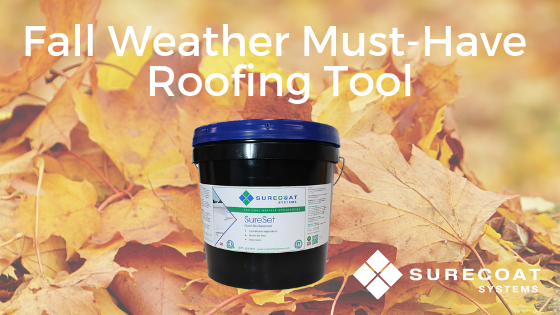Reflective Aluminum or Acrylic Coating? Which is Right for a Commercial Roof?

By Western Colloid.
Building owners aren't always thinking about how their roof can help their building's energy efficiency, but the right coating can make a big difference.
As building owners are searching for ways to make their properties more energy efficient, they turn to new windows, lighting that uses less electricity and even adding insulation. There are many solutions that can help them keep their utility bills down.
But what about the roof? Out of sight/out of mind means that we often don’t think about how to leverage our roofing systems to help manage the buildings’ overall energy efficiency. However, innovative roofing materials not only reduces the energy load on a building but helps extend the overall lifespan of the roof system.
What Are Reflective Roof Coatings?
Reflective roof coatings and specifically aluminum reflective roof coatings, are a great option for contractors and building owners looking to improve their building’s energy efficiency at a lower price point than the longer-lasting and higher performing acrylic coatings.
What Are the Other Benefits of Reflective Roof Coatings?
Along with potential cost savings from reduced energy usage, reflective roof coatings offer a number of other benefits to contractors and building owners, including:
-
Durability. Reflective Coatings are part of Western Colloid’s Fluid Applied Reinforced Roof (FARR) coating systems. FARR systems are liquid emulsion coatings applied between layers of reinforced polyester fabric, creating a waterproof and long-lasting commercial roof coating.
-
Ease of installation. Western Colloid roof coatings are designed to be applied over existing roof systems, including metal and BUR roofs. This saves contractors significant time by skipping the removal of the existing roof.
-
Affordability. FARR systems are a cost-effective way of extending the life of your roof. Materials are significantly less expensive than traditional roof systems, and installation is typically faster, reducing labor costs.
Acrylic or Aluminum: Which Should I Choose?
While Western Colloid started out almost 50 years ago with the cost saving and revolutionary aluminum-based coatings such as this 525 SilverWhite coating, they now offer longer-lasting acrylic coatings that are even more energy-efficient. Both types of coatings are designed to be compatible with a number of different roof systems, including metal, smooth BUR, mineral granulated surface, emulsion and Glass Shield roof systems.
Aluminum reflective coatings are a great solution for commercial roofs in cold climates. Although aluminum coatings are less reflective than acrylic, they are still designed to reflect up to 76% of the sun’s rays, making them a very effective and cost-saving solution for regions that don’t experience extreme heat in the summer.
Aluminum coating is an excellent option when a building has no A/C cooling load such as warehouses. It also provides an excellent UV and weather barrier for the roof membrane. This adds extra years to the life and performance of the membrane. Plus, it is easily re-coated, adding even more life to the membrane.
Installing the Aluminum Reflective Roof Coating
Aluminum reflective roof coatings are designed to be installed over a number of different roof systems, including BUR. However, before the coating is applied, make sure to properly repair the roof surface. Steps should include:
-
Removing all loose debris
-
Cleaning any oil or grease stains
-
Repairing cracks and updating curbs and flashings
-
Making sure the roof is fully dry
Depending on the area to be coated, aluminum coatings can be applied with either a spray or a broom. 525 SilverWhite coating is designed to cover 100 square feet to the gallon.
Although it’s formulated to work best in cooler climates, aluminum roof coatings should not be applied if the temperature is below 55 degrees, as it may not dry properly. In addition, it should not be applied it if there is a chance of rain or in the evening where it can accumulate dew before it has sufficiently dried.
Want to Know More?
If you think a reflective roof coating might be right for you, visit the Western Colloid website to find out more about 525 SilverWhite coating or 720 ARC ElastaHyde to request a consultation.
Learn more about Western Colloid in their RCS directory.
Original article source: Western Colloid





















Comments
Leave a Reply
Have an account? Login to leave a comment!
Sign In